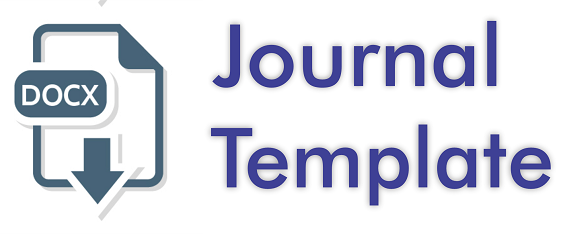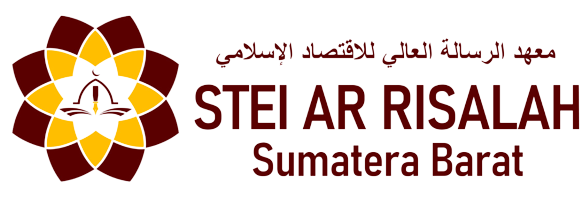Comparison of the Effectiveness of Productive Waqf Management in Indonesia and Singapore: A Comparative Study
Keywords:
Management, Regulation, WaqfAbstract
Waqf, as an instrument of Islamic philanthropy, has great potential in developing a sharia-based economy. In the Indonesian context, waqf can be used as a source of Muslim funds that can assist in managing waqf assets. Even though Indonesia has the largest Muslim population in the world, waqf management in Indonesia is still low. Singapore, as a country with a Muslim minority, has demonstrated the ability to utilize waqf funds optimally and productively. This research compares the regulation and management of waqf in Indonesia and Singapore with the aim of improving waqf management in Indonesia. The results of this research show that waqf regulations in Indonesia are contained in Law Number 41 of 2004 and Government Regulation Number 42 of 2006, while in Singapore they are contained in the Administration of Muslim Law Act (AMLA) Number 27 of 1966. In the development of productive waqf in Singapore, the istibdal method is used to increase the value and productivity of waqf assets. The Management of waqf in Singapore entrusted to the Islamic Assembly of Singapore (MUIS) and WAREES Investment Pte Ltd (Waqaf Real Estate Singapore) to manage endowment funds in Singapore. Management in the development of productive waqf in Singapore uses the istibdal method which is applied in various forms. Therefore, the role of regulations in implementing waqf management must have an impact on the development of waqf in a country, so that waqf becomes one of the instruments of Islamic philanthropy that can be used as a source of funds for Muslims who are able to encourage the economic progress of a country and improve the welfare of society.
Downloads
References
Achta Pratama, F. (2022). Analisis Peran Pendidikan Vokasi Dalam Pengembangan Industri Halal di Indonesia. Risalah Iqtisadiyah: Journal of Sharia Economics, 1(1), 1–7. https://doi.org/10.59107/ri.v1i1.22
Ali, M., K., Yuliani, M. M., & , S., & Abdullah, Z. (2018). Priority aspects of waqf management in Indonesia (3(1)). AL-FALAH: Journal of Islamic Economics.
AMLA. (1968). Administration of Muslim Law Act (AMLA) Chapter IV Article 58 of 1968.
BPS. (2010). BPS Muslim Population Census in Indonesia.
BPS. (2023). Gini Ratio Maret 2023 tercatat sebesar 0,388.
Fahruroji. (2015). Development of Waqf Assets in Singapore. Jurnal Equilibrium, 105–125.
Harahap, S. (2011). Prospects of Cash Waqf in Indonesia. Al-Awqaf Journal of Waqf and Islamic Economics. IV, 88–98.
Haron, M., K., M. K., Fauzi, N. A., Ariff, M. M., & Zainuddin, M. Z. (2016). Cash Waqf Collection: Any Potential factors To Influence It? International Journal of Business, Economics and Law, 9(2), 27–33.
Hasim, K., L., D., A., & M., K. (2016). Analysis of Factors Affecting The Level of Cash Waqf Raising in Indonesia (Analytical Network Process Approach). Jurnal Al-Muzara’ah, 127–141.
Haura, A., Baga, L. M., & Tanjung, H. (2016). Analisys of Cash Waqf Management on Sharia Financial Service Cooperation (Analytical Network Process Approach. Jurnal Al-Muzara’ah, 89–105.
Hosen, M. N. (2016). Problem and challenges of awqaf management in Indonesia. Indonesia Islamic Finance Report: Prospects for Exponential Growth. Jedah: Islamic Research and Training Institute - IRTI.
Karim, S. B. A. (2010). Contemporary shari’a compliance structuring for the development and management of waqf assets in Singapore. Kyoto Bulletin of Islamic Area Studies, 2–3, 143–164.
Mohsin, M. I. A. (2013). Financing through cash-waqf: a revitalization to finance different needs. International journal of Islamic and Middle Eastern finance and management.
Nizar, M. A. (2017). Development of Productive Waqf in Indonesia: Potential and Problems. In B. K. Fiscal, Strengthening Financial Sector Fundamentals in Supporting Economic Stability (pp. 1-76). Indonesia: Nagakusuma Media Kreatif.
Regulations, R. of I. G. (2004). LAW OF THE REPUBLIC OF INDONESIA NUMBER 41 OF 2004 CONCERNING WAQF.
Regulations, R. of I. G. (2006). Government Regulation Number 42 of 2006 concerning Implementation of Law 41-2004 concerning Waqf.
Rosalina Rosa, Desi Aprilia, & Jeanne. (2022). Analisis Pengaruh Pembiayaan Murabahah, Pembiayaan Musyarakah Dan Sertifikat Bank Syariah (Sbs) Terhadap Profitabilitas Dengan Struktur Modal Sebagai Variabel Intervening Pada Perbankan Syariah Di Indonesia. Risalah Iqtisadiyah: Journal of Sharia Economics, 1(1), 16–25. https://doi.org/10.59107/ri.v1i1.17
Rustariyuni, S. D. (2014). The influence of the Gini ratio, non-food expenditure per capita, regional expenditure and economic growth rate on the district/city human development index in Bali province for the period 2004-2012. Jurnal Piramida.
Rusydiana, A. S., & Devi, A. (2018). Elaborating Cash Waqf Development In Indonesia Using Analytic Network Process. International Journal of Islamic Business and Economics, 1–14.
Salarzehi, H., Armesh, H., & Nikbin, D. (2010). Waqf as a social entrepreneurship model in Islam. International Journal of Business and Management, 179–186.
SAPRICO, A. P. (2022). THE EFFECTIVENESS OF SUPERVISION OF THE CLASS I TANJUNG BALAI KARIMUN PASSENGER SAFETY AND PORT AUTHORITY (KSOP) IN EFFORTS TO REALIZE PASSENGER SAFETY AND ORDER IN TANJUNG BATU PORT. KARYA TULIS.
Thaker, M.A.B.M.T., Mohammed, M. O., Duasa, J., & Abdullah, M. A. (2016). Developing cash Waqf model as an alternative source of financing for micro enterprises in Malaysia. . . Emerald Insight Journal Islamic Accounting Business., 254–267.
Wulandari, P., K., S., Sulung, L. A., & Putri, N. I. S. (2016). Unique aspects of Islamic microfinance financing process: experience of Baitul Maal Wa Tamwil in Indonesia. Emerald Insight Humanomics.
Zainal, V. R. (2016). Management and development of productive waqf. Al-Awqaf: Jurnal Wakaf Dan Ekonomi Islam, 1–16.
Downloads
Published
Issue
Section
License
Copyright (c) 2024 RISALAH IQTISADIYAH: Journal of Sharia Economics

This work is licensed under a Creative Commons Attribution 4.0 International License.
License
The non-commercial use of the article will be governed by the Creative Commons Attribution license as currently displayed on http://creativecommons.org/licenses/by/4.0/. This licence allows the user to distribute, remix, tweak, and build upon the licensed work, including for commercial purposes, as long as the original author is credited.
Author’s Warranties
The author warrants that the article is original, written by stated author/s, has not been published before, contains no unlawful statements, does not infringe the rights of others, is subject to copyright that is vested exclusively in the author and free of any third party rights, and that any necessary written permissions to quote from other sources have been obtained by the author/s.
User Rights
Under the Creative Commons Attribution license, the author(s) and users are free to share (copy, distribute and transmit the contribution).
Rights of Authors
Authors retain the following rights:
- copyright, and other proprietary rights relating to the article, such as patent rights,
- the right to use the substance of the article in future own works, including lectures and books,
- the right to reproduce the article for own purposes, provided the copies are not offered for sale,
- the right to self-archive the article.
Co-Authorship
If the article was prepared jointly with other authors, the signatory of this form warrants that he/she has been authorized by all co-authors to sign this agreement on their behalf, and agrees to inform his/her co-authors of the terms of this agreement.
Termination
This agreement can be terminated by the author or RISALAH IQTISADIYAH: JOURNAL OF SHARIA ECONOMICS upon two months’ notice where the other party has materially breached this agreement and failed to remedy such breach within a month of being given the terminating party’s notice requesting such breach to be remedied. No breach or violation of this agreement will cause this agreement or any license granted in it to terminate automatically or affect the definition of RISALAH IQTISADIYAH: JOURNAL OF SHARIA ECONOMICS.
Royalties
This agreement entitles the author to no royalties or other fees. To such extent as legally permissible, the author waives his or her right to collect royalties relative to the article in respect of any use of the article by RISALAH IQTISADIYAH: JOURNAL OF SHARIA ECONOMICS or its sublicensee.
Miscellaneous
RISALAH IQTISADIYAH: JOURNAL OF SHARIA ECONOMICS will publish the article (or have it published) in the Journal, if the article’s editorial process is successfully completed and RISALAH IQTISADIYAH: JOURNAL OF SHARIA ECONOMICS or its sublicensee has become obligated to have the article published. RISALAH IQTISADIYAH: JOURNAL OF SHARIA ECONOMICS may conform the article to a style of punctuation, spelling, capitalization and usage that it deems appropriate. The author acknowledges that the article may be published so that it will be publicly accessible and such access will be free of charge for the readers. RISALAH IQTISADIYAH: JOURNAL OF SHARIA ECONOMICS will be allowed to sublicense the rights that are licensed to it under this agreement.


.png)
.png)






